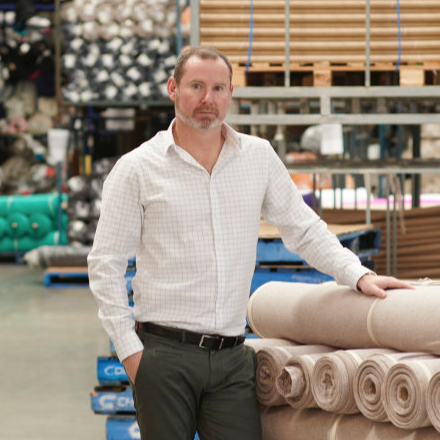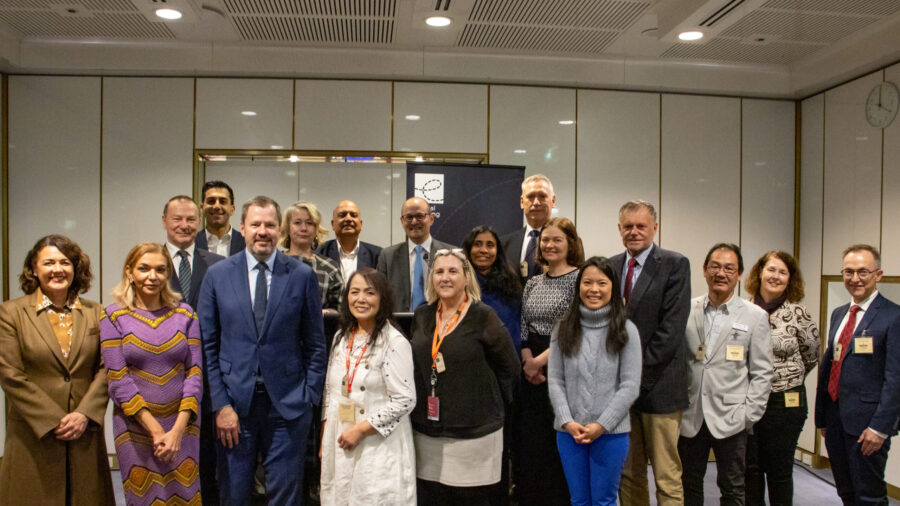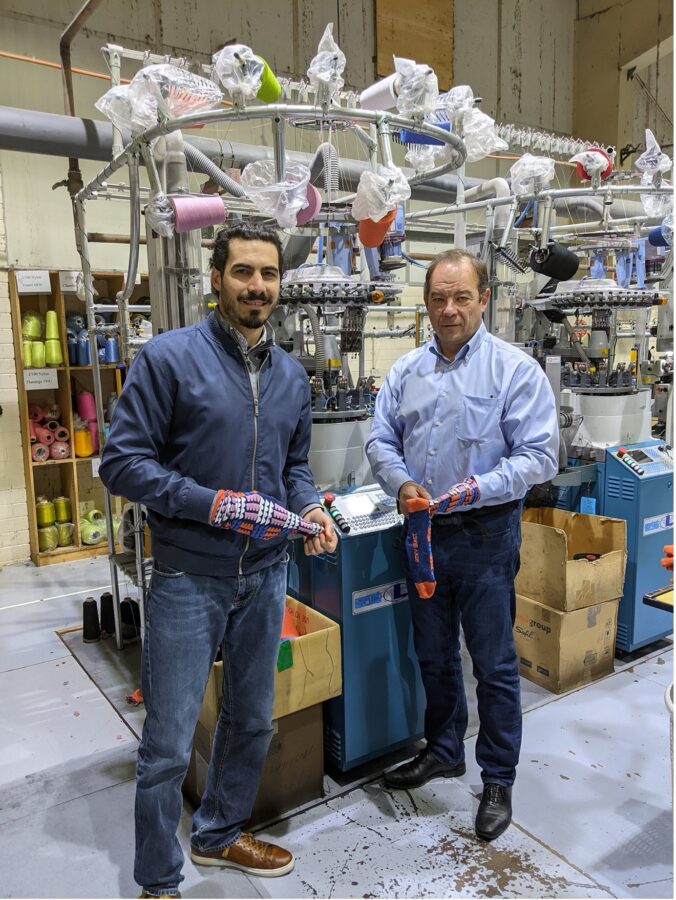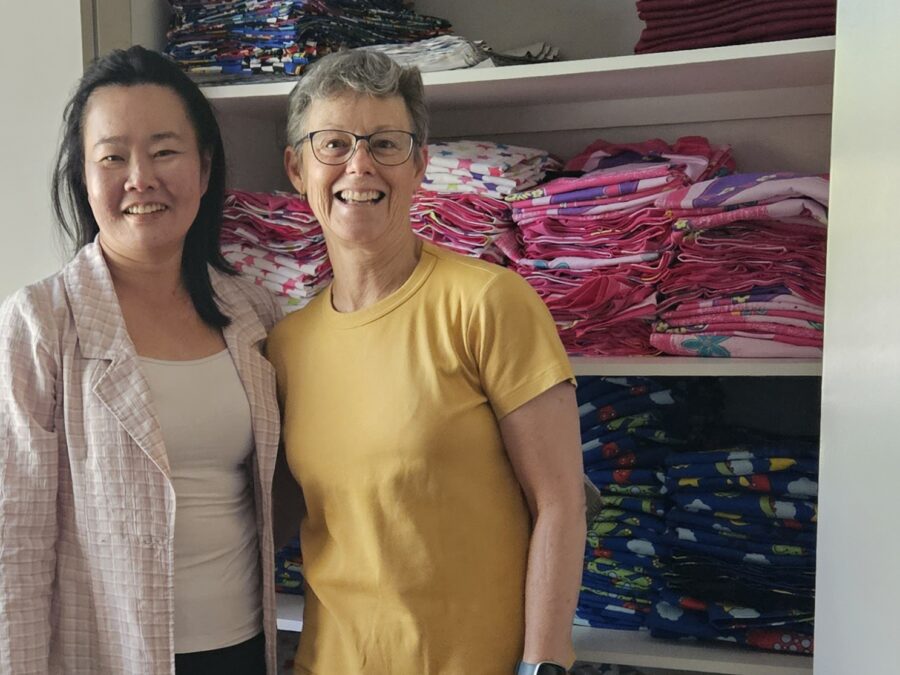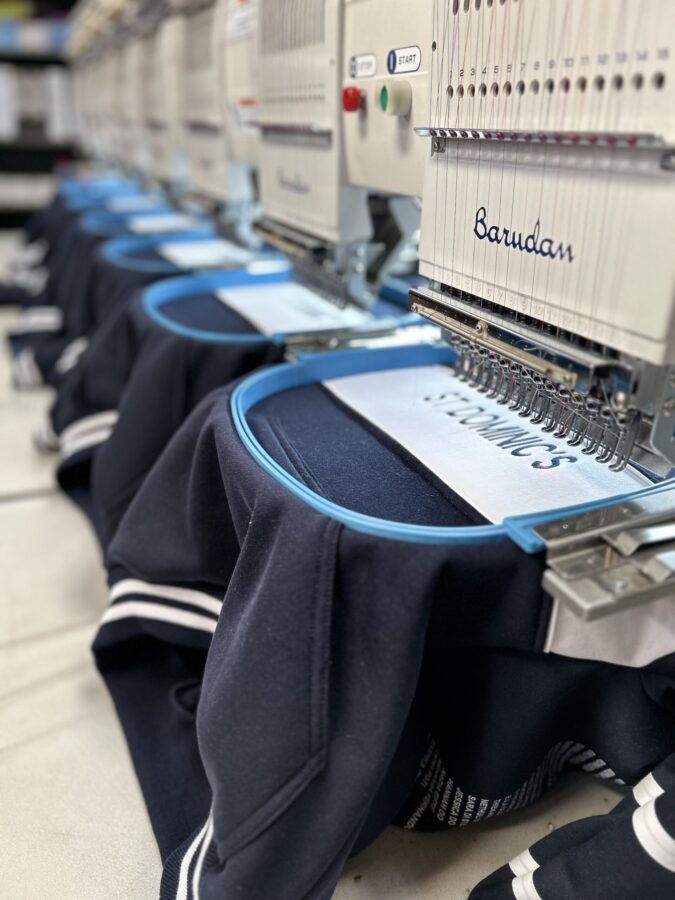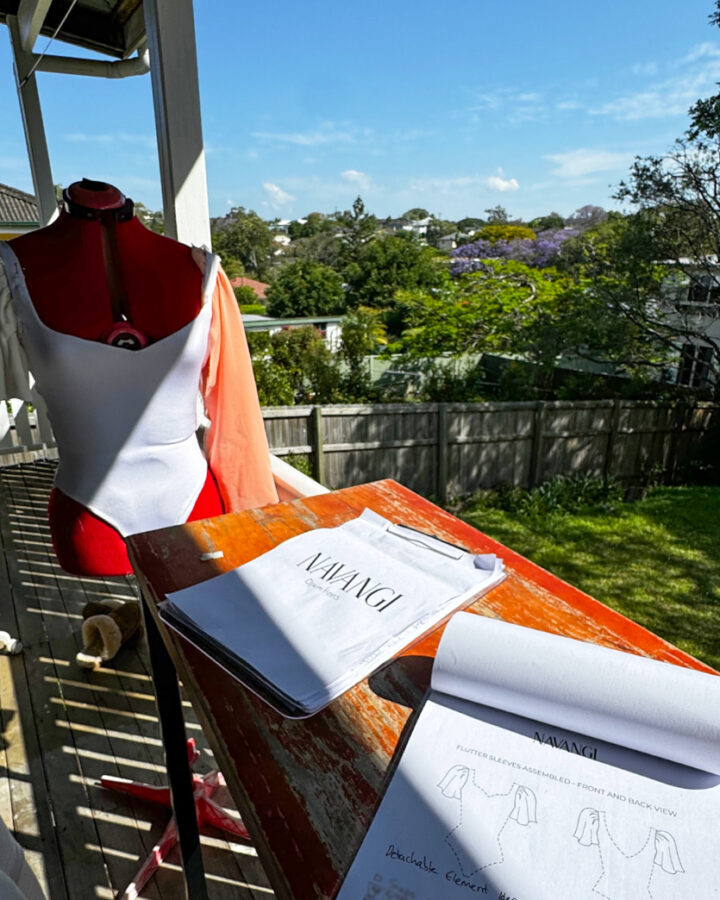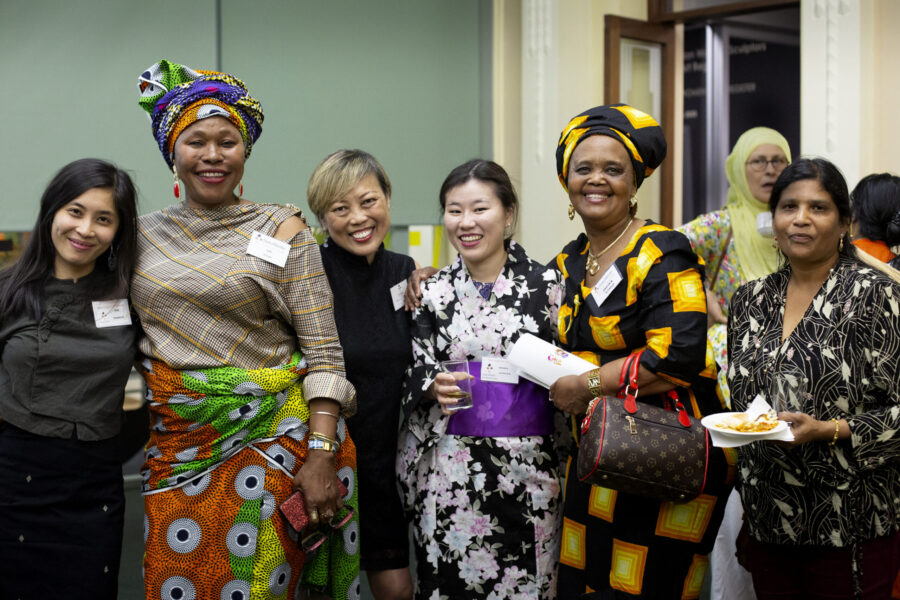The Question We Had to Ask During Australian Fashion Week
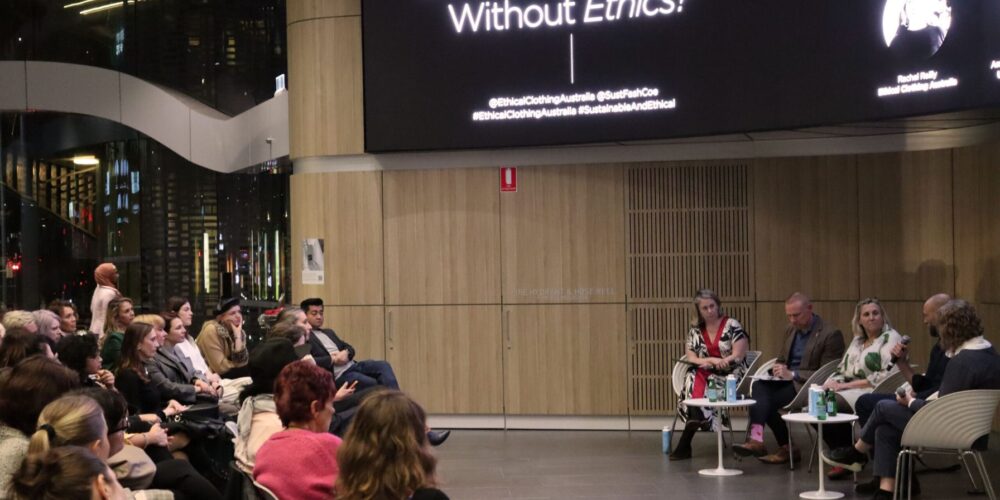
Event
The Question We Had to Ask During Australian Fashion Week
Anyone with an eye on the fashion industry over the last few years knows that sustainability has been in the spotlight – sparking much-needed conversation, raising awareness and even prompting legislative change. We’re hearing more than ever about sustainable materials, innovative manufacturing processes, and calls to regulate the industry for the good of the planet.
But is the focus on sustainable fashion obscuring an equally uncomfortable social and economic reality? Does the current attention on sustainable fashion ignore the impact the industry has on the people who make our clothes?
Our latest panel event, “Is there sustainable fashion without ethics?” – set out to answer this and more.
L-R: Rachel Reilly (Ethical Clothing Australia), Associate Professor, Dr Timo Rissanen (UTS/TAFE NSW Centre of Excellence in Sustainable Fashion and Textiles), Jenny Kruschel (CFMEU Manufacturing Division), James Dunlop (Be Slavery Free), Aldona Brangwin (Citizen Wolf).
Held on Gadigal Land in Sydney/Eora on Thursday 16 May 2024, at the central University of Technology Sydney (UTS) campus, the panel was a collaboration between Ethical Clothing Australia and The Centre of Excellence in Sustainable Fashion + Textiles, a partnership between UTS and TAFE NSW.
In what was a rich one-hour discussion, the panel of subject matter experts explored the often-uncomfortable nexus between sustainability and ethics, unpacking many of the systemic issues that we need to collectively confront to fully realise an ethical fashion future in Australia. Here are some of our key reflections of the conversation.
‘Sustainability’ versus ‘ethics’ – what’s the difference (and why does it matter)?
In her opening remarks, Rachel Reilly – National Manager at Ethical Clothing Australia and the panel’s moderator – set the scene by calling attention to the scale and scope of the challenges before us:Sustainability is considered generally to have three pillars: economic, social and also environmental. I'm sure for many of us in the room, we’re conscious that the fashion industry often uses the word ‘sustainability’ to talk about their environmental impact, with often an oversight on talking about the social and the economic.
“And while the definition of sustainability is the ability for something to be maintained at a certain rate or level, it is estimated currently that there's 100 billion items produced by the global fashion industry each year.
“It's also estimated there's about 60 million garment workers in the world making our clothes, and yet only 10% of companies are paying a living wage at tier one factories.
“For me – and I'm sure for many people in the room as well – realising, protecting and upholding human rights are fundamental to the pursuit of ethical conduct. In the context of the fashion industry this really cuts across all human rights: civil, political, economic, social, and cultural rights.
“And with this in mind, is fashion sustainable? And if so, can it ever be considered ‘ethical’ without radical systemic change?
— Rachel Reilly, Ethical Clothing Australia
People, planet and an imbalance of power
For fashion to be truly sustainable it needs to consider the wages and economic conditions of the people who make our clothes. Why then do the environmental aspects of sustainability dominate so much of the conversation?For academic Associate Professor Dr Timo Rissannen from UTS’ Centre of Excellence in Sustainable Fashion + Textiles:
Take cotton for example. Dr Rissannen pointed out that, as a material, cotton is often vilified in sustainability spaces due to its resource intensiveness, with myriad solutions often presented to ‘replace’ it.The short, and slightly academic, answer to the question is structural. The reason human rights get overlooked over the environment, is at least partly to do with white supremacy, colonialism and racism.
— Dr Timo Rissannen, UTS’ Centre of Excellence in Sustainable Fashion + Textiles
However, as Dr Rissannen shared, there are currently 24 million cotton growers and 100 million families – many living and working in the Global South – who directly rely on the growing of cotton for their livelihoods. And as yet, switching to cotton alternatives is not a silver bullet.
“When these ‘quick fixes,’ which aren’t actually fixes, are presented, I always wonder: what about the people that rely on cotton growing? Because most of them are very small-scale family farms. And as we saw in 2022, with the floods in Pakistan, these are some of the most vulnerable people in the world.”
Dr Rissannen suggested a re-evaluation of what it means to be human; dispensing with the habit of ‘othering’ that often accompanies these discussions.
“We need to move away from an ‘us’ and ‘them’ perspective when thinking about garment workers – we are all human. We shouldn’t separate the people in Bangladesh or Cambodia, or even in the factories here in Sydney, from us in this beautiful room.”
Sharing the work
Throughout the conversation, panellists emphasised the need for multi-stakeholder initiatives designed to increase accountability, transparency and responsibility across the industry.Speaking to the challenges and possibilities of this approach was James Dunlop from Be Slavery Free — a coalition of civil society organisations working to prevent, disrupt and remediate modern slavery. An experienced communications and policy strategist, James has worked internationally with ACT (Action, Collaboration, Transformation) — an initiative between international brands and retailers, manufacturers, and trade unions to address the issue of living wages in the textile and garment supply chain.
Suggesting that it’s potentially unrealistic to expect individual fashion brands to enact change, James pointed out that “There’s an idea that we expect fashion companies to play that role – that fashion companies will individually make ethical and moral decisions that will potentially have a financial impact on their bottom line. And I’m not sure that we should even expect companies to make those kinds of ethical decisions, necessarily.”The challenge is largely that the industrial relations and environmental laws function relatively well in Australia – not without constant pressure – but in the regions where most clothing gets made, the laws are inadequate, or they're inadequately enforced.
— James Dunlop, Be Slavery Free
James went on to say that the need for change in the fashion industry is urgent, but we also need “really clear thinking” about what is realistic or pragmatic.
“What are the mechanisms that respond to the reality that fashion companies need to make profit? What are the ways that we can, as an industry, find the through-path to get there?”
Referring to the multi-stakeholder action that occurred in the wake of the Rana Plaza tragedy in 2013, James shared:
“The collapse happens, largely, because of inadequate laws or enforced labour laws. No individual company was taking the responsibility. But you have a group of companies in the wake of the disaster who work with unions and suppliers to bypass government and say: ‘We can do something together that will raise the standards in factories. It’s going to have a cost, but not one individual company is on the chopping block for that cost’. That’s just pragmatic. And in the end, it’s not without its issues, but it raised the working standards in Bangladesh clothing factories substantially.”
Sustainability is not enough
In the fashion industry, ‘sustainability’ is an umbrella term often used by brands to refer to their environmental efforts, encompassing everything from switching to sustainable fibres, to plastic-free packaging, low-impact dyes, and reduced water consumption processes. So, how do we bring humans into the conversation?For Jenny Kruschel, TCF National Secretary in the manufacturing division of the CFMEU and an executive member of IndustriALL, just talking about sustainability is not enough.
In a similar vein to our panel event on ‘Who Made My Clothes…In Australia?’ for Fashion Revolution Week 2024, Jenny addressed the fact that supply chains can be just as complex in Australia, as they are offshore, which means the same opportunities for exploitation and poor working conditions exist in Australia, as in any other part of the world.What a lot of brands do is just ‘sell’ the sustainability part of the garment and hope that the people who buy their garment and love their garments think that's enough. And then they can hide all the other bad things in the supply chain, and not talk about them.
— Jenny Kruschel, TCF National Secretary in the manufacturing division of the CFMEU
“Even in Australia, we have good laws, but we see lots of exploitation. We see lots of things go wrong and we still see supply chains where people are being underpaid and not getting their superannuation and working in sweatshops. We still see that here, even though we’ve got good laws.”
To combat this, Jenny emphasised that we need transparent and accountable supply chains that are regularly audited and reported on, and that the consequences for not meeting the relevant workplace laws should be significant.
“If you can’t do that – if you can’t do the right thing – you can’t do business in Australia.”
When ethics and sustainability combine
As we consider how to strike the right balance in sustainability and ethics between people and planet, thankfully there are already businesses who are seamlessly weaving the two together.Aldona Brangwin, Production Manager at Ethical Clothing Australia-accredited brand and manufacturer, Citizen Wolf, shared the benefits of increased visibility in local supply chains, in comparison to her experiences with offshore manufacturing early in her career.
“You didn’t see the people that were making it, you weren’t involved with any of the process. Occasionally, somebody would go over and do a factory inspection. But not that often. It wasn’t ‘til I came back to Australia in the early 2000s that I worked for Cue, and got to see the local production scene and how you can have the commitment with local manufacturers to see the garments being made, see the workers, and be transparent about the way that you can work together to create those garments.”
Aldona also shared some real-world examples of what it looks like to have workers’ rights embedded in the values of a business like Citizen Wolf:
Speaking to the values that we as consumers and businesses can hold when it comes to merging ethics and sustainability, Aldona went on to share:Each of the team members that we've got on board has a share and a stake in the business, so we get to all share the successes together. Our seamstresses are paid on average above the award, and we work closely together with all of them to make sure that their space is not only safe and clean and tidy, but also the working hours and the environment works best for them.
— Aldona Brangwin, Citizen Wolf
“I personally think, respect for others, but respect for understanding the true cost of each of the elements that goes into making those garments, because it’s not necessarily the retail price. As somebody who buys thread, it costs me $2 wholesale for that thread. And when you can buy a T-shirt for $2, when the thread already costs that? So, understanding all the hands that go into that.”
A view to the future of fashion
Rounding out the conversation in her characteristically galvanising and practical way, Ethical Clothing Australia National Manager, Rachel, shared some key takeaways and a strong call to action for us each to carry on having these important conversations about workers’ rights, ethics and sustainability.“I have this saying I think the team at Ethical Clothing Australia probably gets sick of me saying, but: “‘Public opinion today is law in 20 years.”
“We need to take a good look at ourselves and our values. Through that [lens], we start to see public opinions or attitudes shift and then that gets indoctrinated into laws –- which is what we’re seeing around a lot of these human rights —, due diligence laws that are popping up around the globe that are helping to create some frameworks to drive businesses to have more ethical practices.”
We need transparency. We need to value the people in our supply chains. We need to know who the people in our supply chains are. We need to be respecting other cultures and countries and their own capacities and desire for growth.
— Rachel Reilly, Ethical Clothing Australia
Rachel Reilly, National Manager at Ethical Clothing Australia and Dr Lisa Lake, Director of the Centre of Excellence in Sustainable Fashion + Textiles, a partnership between UTS and TAFE NSW
Equipping the audience with not only strong evidence but hope as to how essential ethical labour practices are to the sustainable fashion movement, these are the conversations we need to be having as an industry. We must continue to centre the rights of workers in local supply chains, and advocate for systemic changes for workers, both in Australia and across the world.
Ethical Clothing Australia would like to warmly thank our venue hosts and the amazing staff at University of Technology Sydney, including Dr Lisa Lake for her kind introduction on the night. Thanks also to our expert panellists for their insights and generosity: Associate Professor Dr Timo Rissannen from UTS/TAFE NSW Centre of Excellence in Sustainable Fashion + Textiles; James Dunlop from Be Slavery Free; Aldona Brangwin from Citizen Wolf; and Jenny Kruschel, TCF National Secretary in the manufacturing division of the CFMEU.
This event was delivered as part of Ethical Clothing Australia’s Federal funding. Thank you to the Federal Government for their investment in these important conversations.
To find out more about Ethical Clothing Australia’s upcoming events, be sure to subscribe to our newsletter and follow us on Instagram, Facebook and LinkedIn.
Related articles
Explore more insights, updates and stories from across Australia’s ethical and local manufacturing industry.

